Honoring the cultures of Polynesia
The Polynesian Culture Center is impressive. A quick Google search will prove that the Center is well-noticed, deeply popular, and top-rated – and it is no secret why the Center provides an unforgettable family-friendly experience rooted in culture. From watching Kap in the Samoan village start a fire using nothing but traditional tools and a coconut, to the breathtakingly striking choreography of the evening show “HA: Breath of Life”, the Center offers non-stop world class entertainment showcasing some of the most interesting and rich cultures in the world – namely Polynesian cultures.
However, structuring a tourist attraction on centuries old Pacific cultures in an honorable, respectful and accurate manner is a balancing act between entertainment and accuracy. Though accurate portrayals are very important, the shear length of a 3-day Tahitian Wedding Ceremony (for example), is not reasonable.
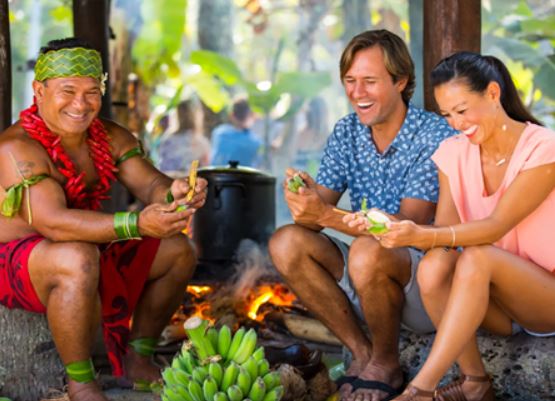
Kap Teo Tafiti from the Samoa Village demonstrates how to peel a banana
Some potential visitors may question the sincerity of such activities. The question that arises is, can a commercial entity correctly represent Polynesian cultures? To those who may share this concern, I would like to share some words I once heard from a respected member of the La’ie community as he reflected on this very issue. He compared the Center to a canoe – drawing on imagery from the amazing voyager culture all Polynesians share – and asked, “who is steering the canoe?”
In the case of the Center, the represented culture is being shared by legitimate members of that community for the benefit of that community. Most of these members, including 80% of the Administrative Board and most employees are direct members of these cultures, with a majority of them born on the islands nations we represent.
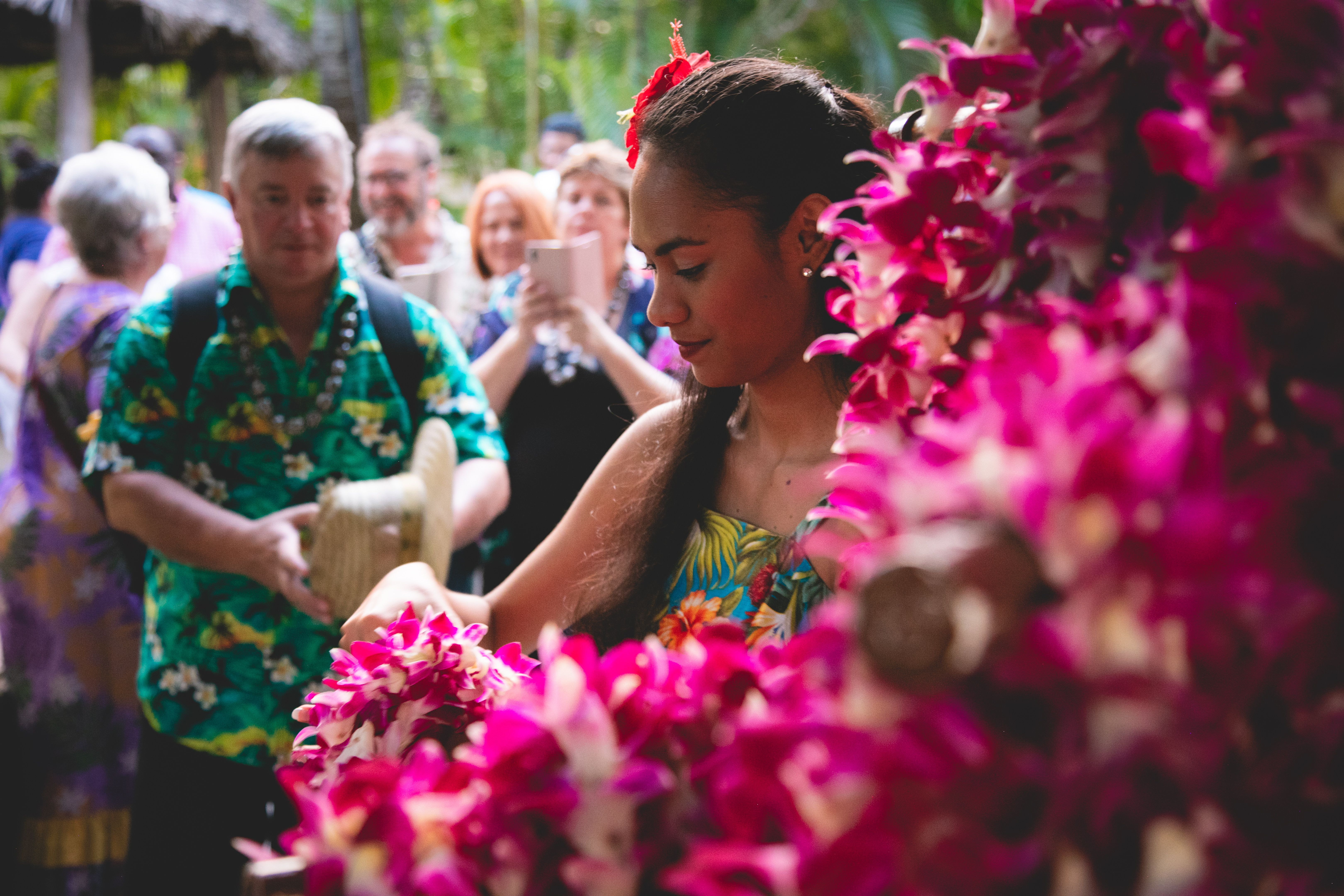
Guests are welcomed with fresh flower leis before entering our Alii Luau
I have been privileged to know many employees of the Center and have seen how meaningful it is to some of my student friends who are given what they consider a sacred privilege to carry on the cultural practices of their ancestors. I had a Hawaiian roommate who was raised on the mainland. He was hired as a hula dancer for the Hawaii Village at the Center and it deeply changed his life. One day, he shared with me how what I might carelessly label as a “job” provided him with an incredible opportunity to reconnect to a history and culture his family had grown distant from. To him, performing the hula is not simply a convenient way to pay his rent, it is how he honors his heritage and keeps his culture alive.
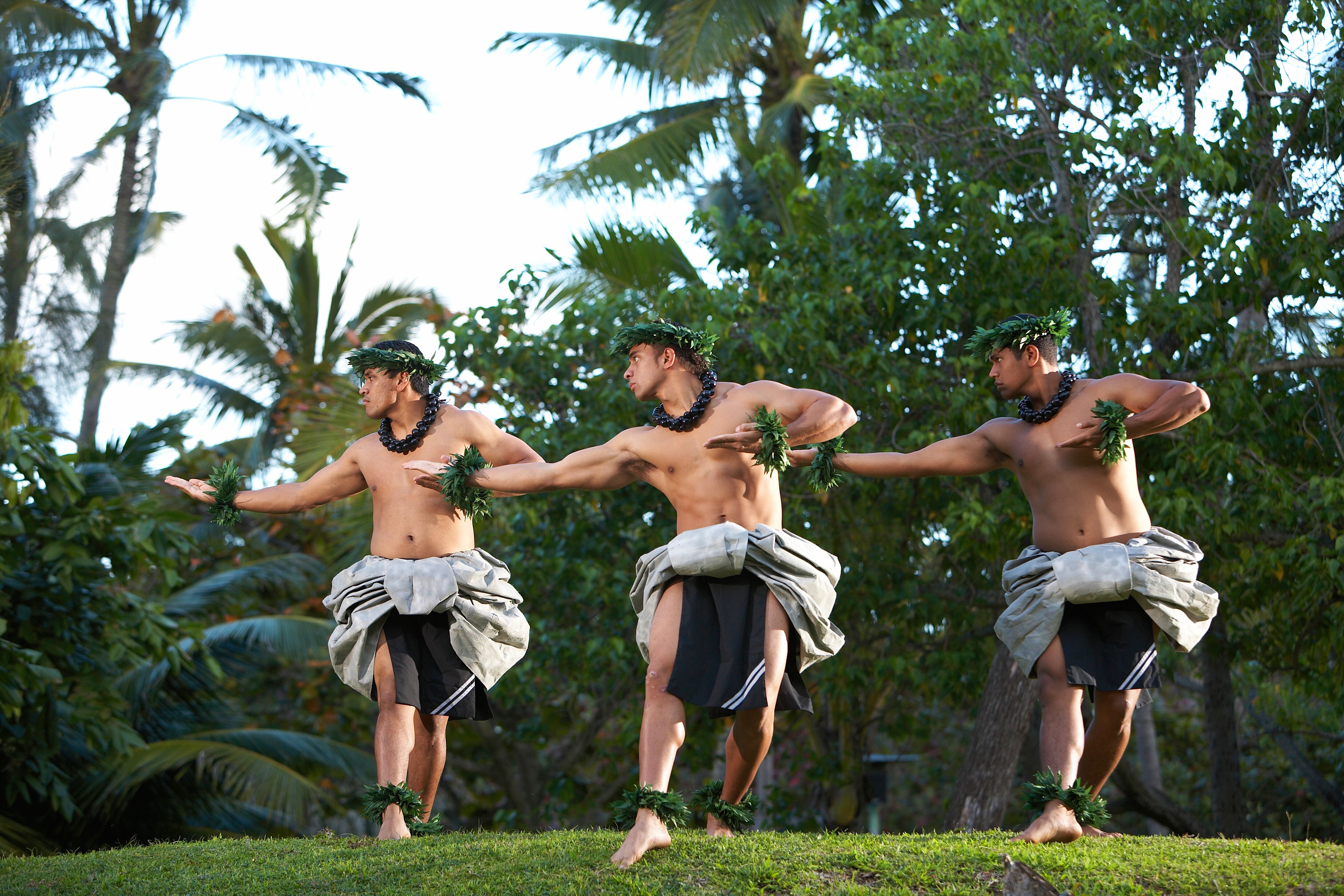
Kane (men) dancing the hula kahiko (ancient hula) at the Polynesian Cultural Center
The Center is a breathing continuation of the Polynesian cultures
The Center offers so much more than a bland museum-like approach to conveying cultural practices. It is a living, breathing continuation of the cultures it promotes. It is not a collection of antiques and actors who portray history; it is a vibrant cultural sanctuary where the demands of modern living have not robbed us of rich and beautiful culture. When you eat at the Luau, you are not eating a historian’s best guess at what Hawaiians may have enjoyed eating. It is not a simulation; it is not a fabrication. You are experiencing an authentic meal prepared for you in Hawai`i by Hawaiians. When you watch members of the Aotearoa (New Zealand) village perform the Haka, those men are not performers acting for a paycheck. They are members of a proud culture honoring the generations of warriors who came before them – ask any one of them and they will speak of their opportunity to perform for you as a near spiritual experience that they take very seriously.
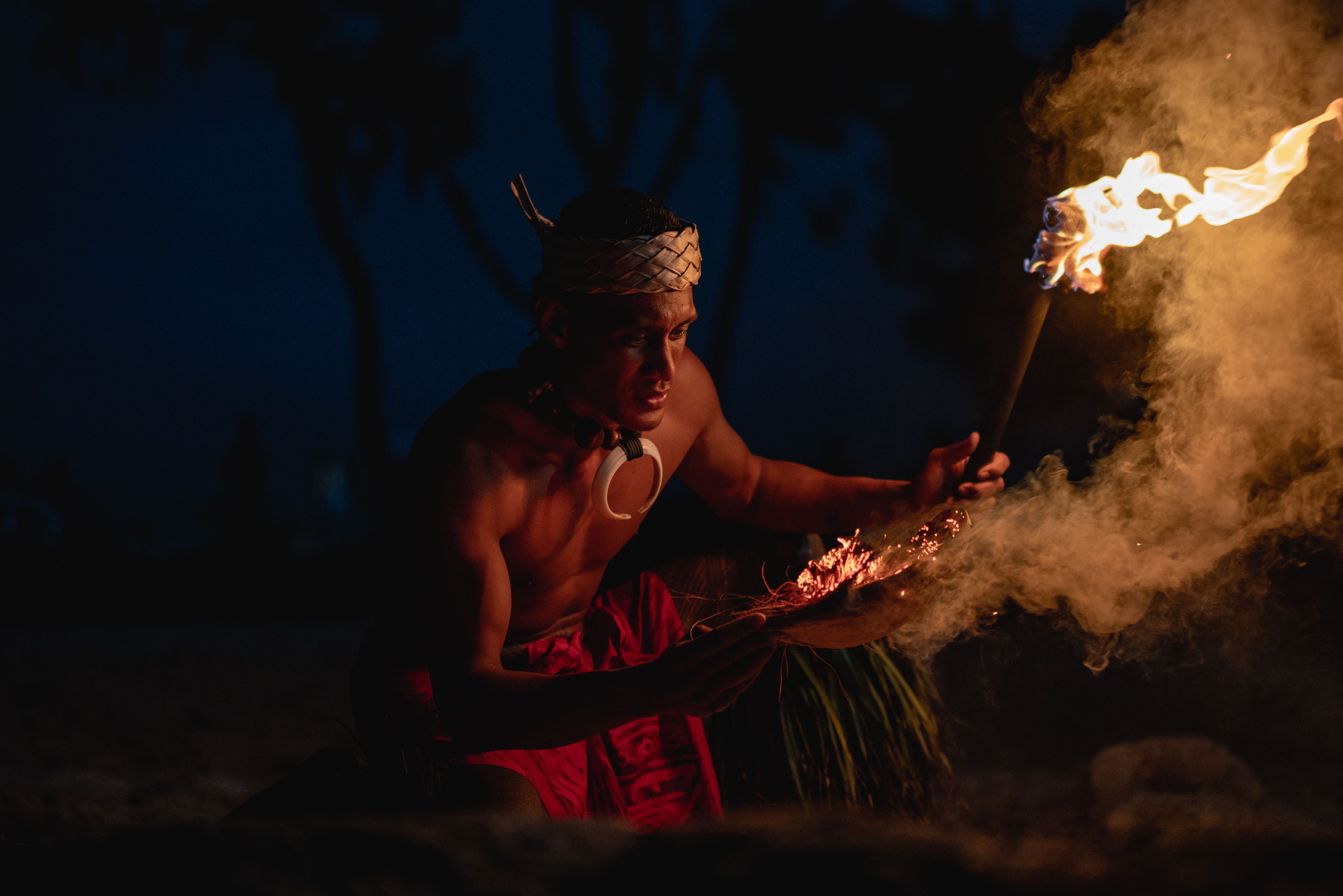
A Samoan fireknife dancer lights his war knife (nifo oti) using fire and coconut husk
The Center is a vehicle for cultural preservation
For a truly unique experience, I invite you to visit the Polynesian Cultural Center. There is every reason to do so and no reason not to. It is a wonderful vehicle for cultural preservation that provides employment for members of the same cultures that are being displayed. It is not a canoe commandeered illegitimately for the gains of members outside of the cultures experienced there. It is a canoe full of Polynesians, steered by Polynesians, for Polynesians and it is truly remarkable.
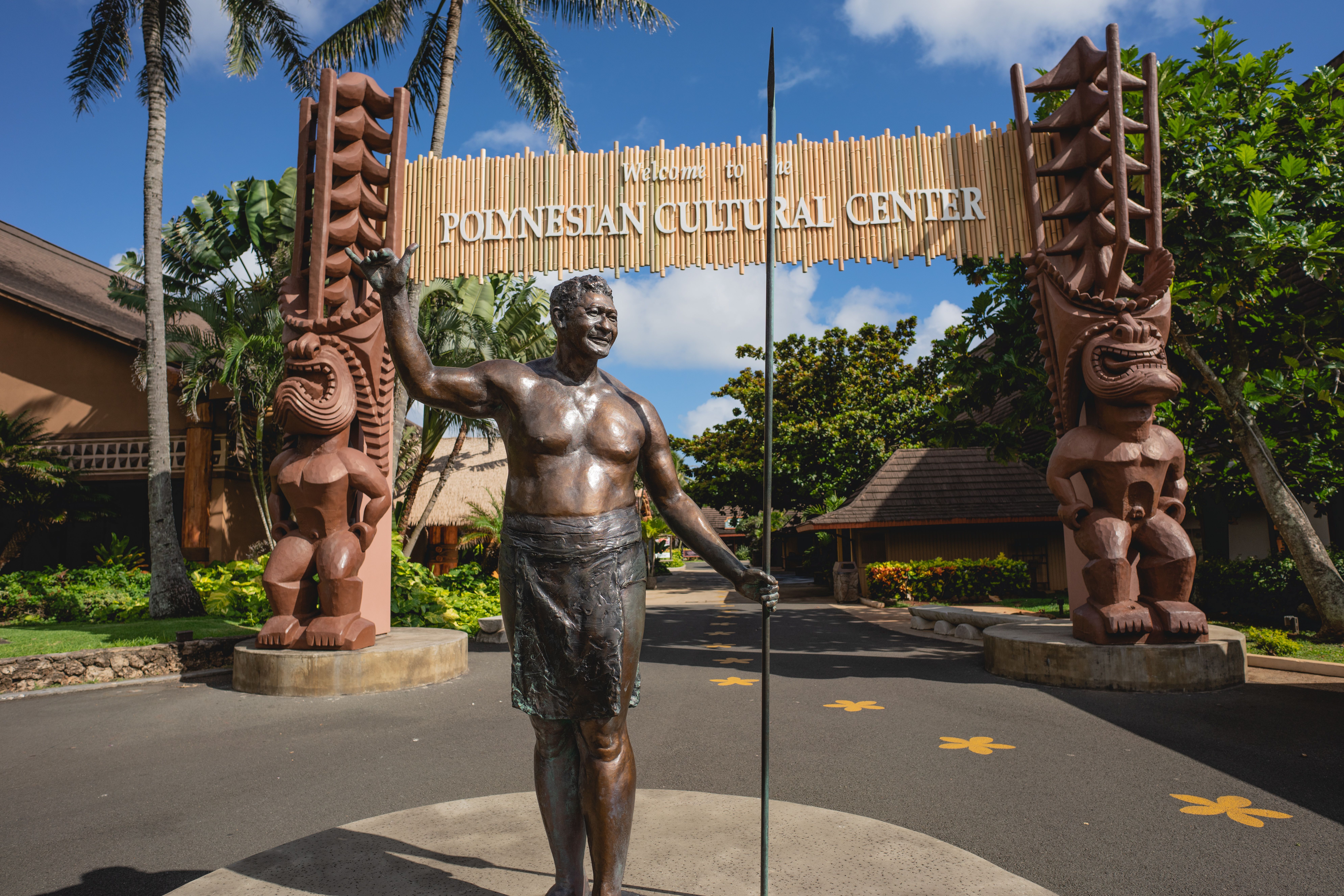
Guests are greeted at the entrance to the Polynesian Cultural Center by our Hamana Kalili statue and two very impressive tiki gods constructed onsite by our Polynesian carvers
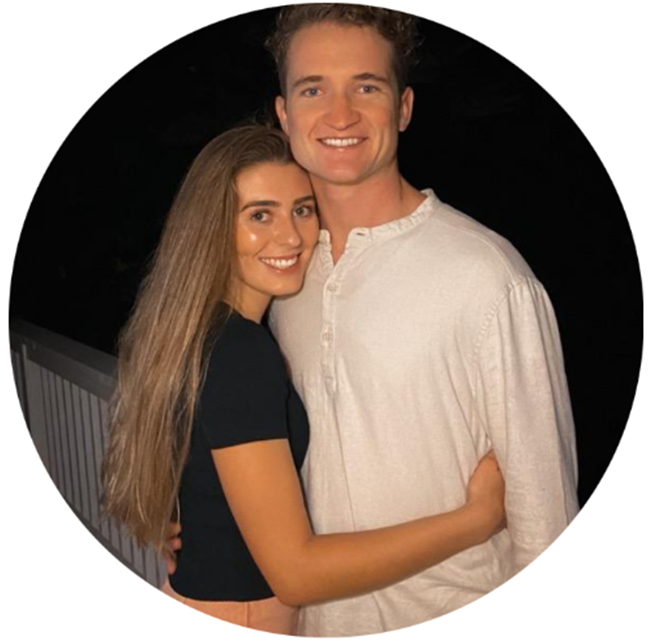
Connor Hansen is a senior at Brigham Young University – Hawaii majoring in Business Management emphasizing in economics and finance. His minors include history, international development, and political science. He has also earned a certificate in legal studies and hopes to practice law someday. You can find Connor on LinkedIn and contact him through his personal website.

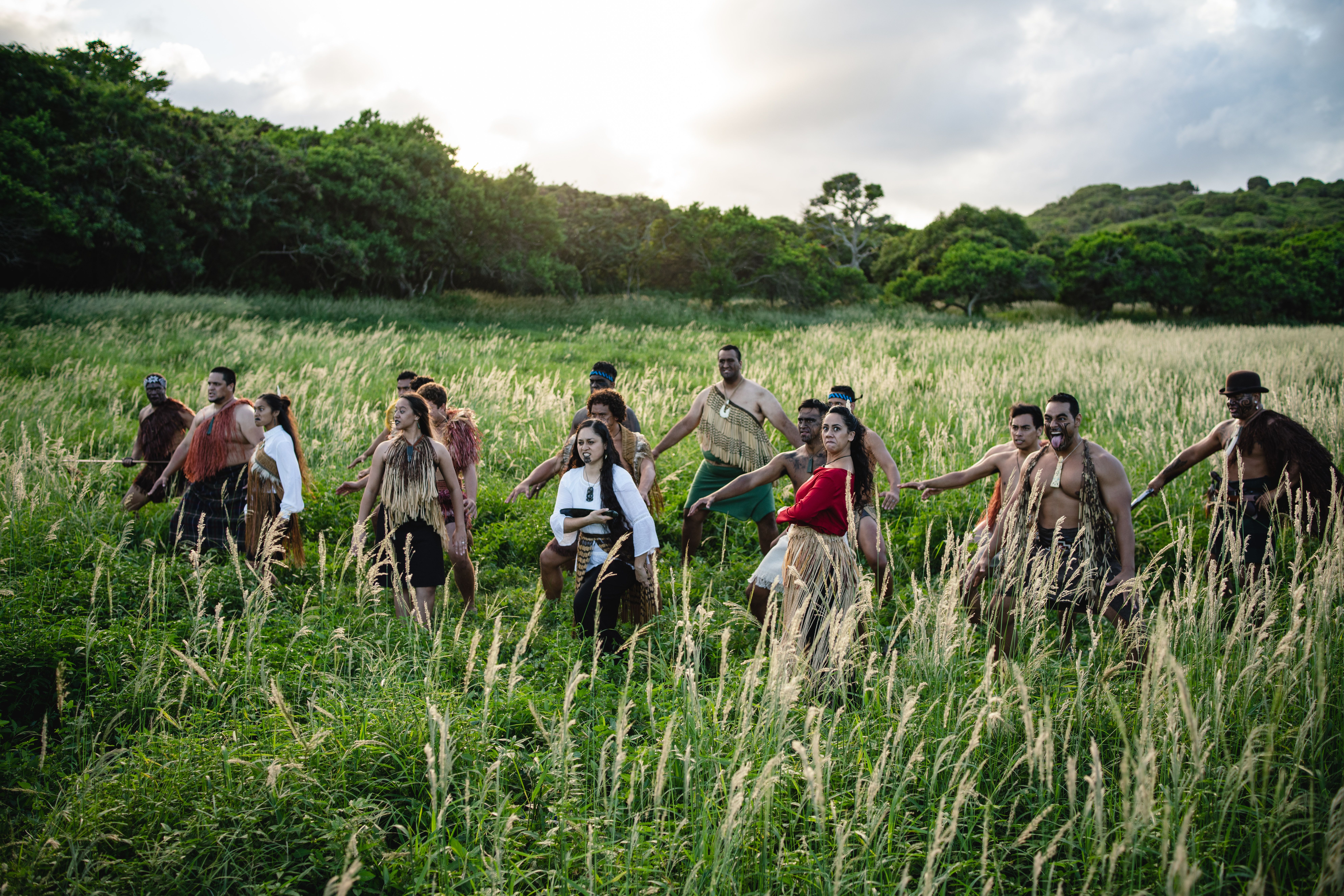
Alas, I’ll probably never get to visit this site. My Native Hawaiian neighbor keeps talking about the wonders you describe so at least I feel “informed”. Well, maybe someday I can come.